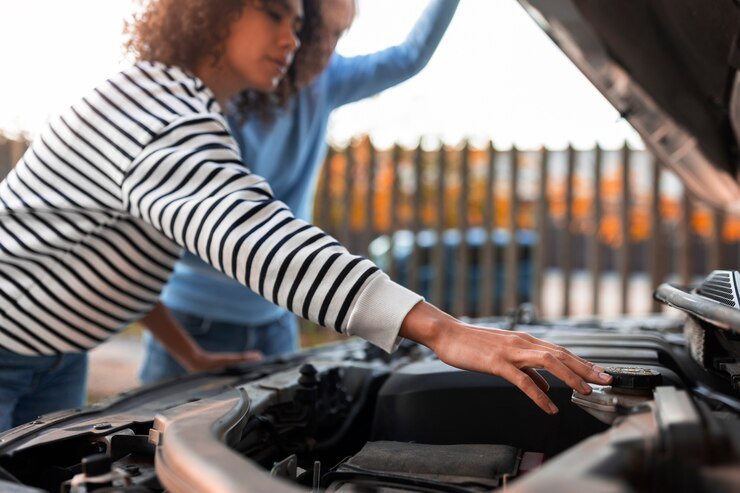Engine overheating is a common issue that many drivers face, and it can lead to serious damage if not addressed promptly. Understanding the reasons behind engine overheating, implementing preventive measures, and knowing how to effectively resolve the issue are crucial for maintaining vehicle performance and preventing costly repairs. In this comprehensive guide, we will delve into the reasons for engine overheating, strategies for prevention, and solutions to address overheating problems in vehicles.
Reasons for Engine Overheating:

There are several factors that can contribute to engine overheating, ranging from mechanical issues to external factors. Some common reasons for engine overheating include:
- Low coolant level: Insufficient coolant in the radiator can lead to inadequate cooling of the engine, resulting in overheating.
- Cooling system leaks: Leaks in the radiator, hoses, water pump, or coolant reservoir can cause a loss of coolant and lead to engine overheating.
- Faulty thermostat: A malfunctioning thermostat can prevent the proper regulation of coolant flow, causing the engine to overheat.
- Clogged radiator: Accumulated debris, dirt, or mineral deposits in the radiator can obstruct airflow and coolant circulation, leading to overheating.
- Worn-out water pump: A failing water pump can impede the circulation of coolant through the engine, resulting in overheating.
- Cooling fan issues: Malfunctioning cooling fans can prevent adequate airflow through the radiator, causing the engine to overheat.
- Engine oil issues: Low oil level, degraded oil, or oil leaks can hinder proper lubrication and cooling of engine components, leading to overheating.
- External factors: Extreme weather conditions, such as hot ambient temperatures or driving in heavy traffic, can put additional strain on the cooling system and contribute to engine overheating.
Prevention of Engine Overheating:

Preventing engine overheating requires regular maintenance and attention to key components of the cooling system. Here are strategies to prevent engine overheating:
- Maintain proper coolant level: Check the coolant level regularly and top it up as needed to ensure adequate cooling of the engine.
- Inspect for leaks: Look for signs of coolant leaks in the engine bay, under the vehicle, or on the ground to address leaks promptly and prevent loss of coolant.
- Replace the thermostat: Replace the thermostat at recommended intervals to ensure proper regulation of coolant flow and prevent overheating.
- Flush the radiator: Regularly flush the radiator to remove debris, sediment, and contaminants that can impede cooling system function.
- Inspect the water pump: Monitor the condition of the water pump and replace it if signs of wear or failure are detected to maintain efficient coolant circulation.
- Test the cooling fans: Check the operation of the cooling fans and replace faulty fans or fan motors to ensure proper airflow through the radiator.
- Monitor engine oil: Regularly check the engine oil level and quality, and address any oil leaks or issues promptly to prevent engine overheating.
- Drive responsibly: Avoid driving in stop-and-go traffic for extended periods, especially in hot weather, to reduce strain on the cooling system and prevent overheating.
Solutions for Engine Overheating:

If your engine begins to overheat while driving, it is crucial to take immediate action to prevent damage to the engine. Here are steps to address engine overheating:
- Pull over safely: If you notice the temperature gauge rising or steam coming from the engine, pull over to a safe location and turn off the engine to prevent further overheating.
- Allow the engine to cool: Open the hood of the vehicle to allow heat to dissipate and wait for the engine to cool down before attempting any checks or repairs.
- Check coolant level: Once the engine has cooled, check the coolant level in the radiator and top it up if needed to ensure proper cooling.
- Inspect for leaks: Look for signs of coolant leaks in the radiator, hoses, water pump, or other components and address any leaks promptly to prevent further overheating.
- Check the thermostat: Test the thermostat for proper operation and replace it if it is malfunctioning to regulate coolant flow effectively.
- Verify cooling fan function: Start the engine and check that the cooling fans are operating properly to ensure adequate airflow through the radiator.
- Address radiator issues: Inspect the radiator for signs of blockages, debris, or damage and clean or repair the radiator as needed to improve cooling efficiency.
- Test the water pump: Verify that the water pump is functioning correctly and replace it if necessary to maintain proper coolant circulation.
- Refill and bleed the system: After addressing any issues, refill the radiator with coolant, bleed air from the system, and test the vehicle to ensure proper cooling performance.
- Seek professional help:If you are unable to resolve the engine overheating issue or if it recurs frequently, seek the assistance of a qualified mechanic to diagnose and repair the underlying cause of the problem.
Conclusion:

Engine overheating is a serious issue that can lead to significant damage to the vehicle if not addressed promptly and effectively. By understanding the reasons for engine overheating, implementing preventive measures, and knowing how to address overheating problems in vehicles, drivers can maintain the performance and longevity of their vehicles. Regular maintenance, vigilant monitoring of key components, and immediate action when overheating occurs are essential for preventing engine damage and ensuring safe and reliable operation of the vehicle. By following the strategies outlined in this guide, drivers can reduce the risk of engine overheating and enjoy a trouble-free driving experience.

